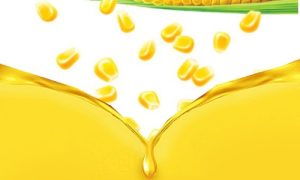Express View on restriction of ethanol production: Food vs fuel

Indian agribusinesses have been subjected to a series of policy shocks since mid-2022, from export curbs on rice, wheat, sugar and onions to stocking limits on pulses. More recent is the Centre directing sugar mills not to produce any ethanol directly from concentrated cane juice/syrup. These decisions go against the Narendra Modi government’s previous reform intent and policy initiatives.
The curbs on exports and produce quantities that processors, wholesalers and retailers can stock are a reversal of the letter and spirit of the farm laws, enacted by Parliament in September 2020 and repealed in November 2021. As regards ethanol, mills have invested in new distilleries for producing it straight from cane juice — instead of the leftover molasses after extraction of sugar — purely on the strength of favourable government policy. That included paying a higher price for ethanol made from cane juice, which, unlike through the molasses route, entails total sacrifice of sugar revenues.
The Centre has since modified its original order, with mills now being allowed to produce ethanol using both cane juice and an intermediate-stage ‘B-heavy’ molasses. But this is conditional upon not more than 1.7 million tonnes (mt) of sugar from these two feedstocks getting diverted — fermented and distilled into ethanol — in the ongoing 2023-24 supply year (November-October).
Such diversion amounted to 4.5 mt in 2022-23, 3.4 mt in 2021-22 and 2.2 mt in 2020-21. Less sugar going for fuel (ethanol is blended with petrol) would mean more of it being available for consumption as food. It is similar to the export ban on sugar since May, which was also aimed at augmenting domestic availability of the sweetener. All this comes even as mills have started the new sugar season with six-year-low stocks. Moreover, there are concerns over this year’s production — it may fall below 30 mt, from 33 mt in 2022-23 and 36 mt in 2021-22 — on the back of dry weather in Maharashtra and Karnataka. And with the national elections scheduled in April-May 2024, the Modi government wants to take no chances.
There is a cost to this. The first is to the mills that have spent money, including through borrowed funds, for creating additional distilling capacities. Those being rendered idle would undermine their ability to pay both banks and cane growers. A more serious cost involves policy credibility. The Modi government deserves credit for its national biofuels programme that has led to the average ethanol blending in petrol rising from 1.6 to 11.8 per cent between 2013-14 and 2022-23. The December 7 order on ethanol is almost like the May 13, 2022 notification prohibiting wheat exports. Such bolts from the blue will deter investments in a sector — agriculture — that badly needs them.
















